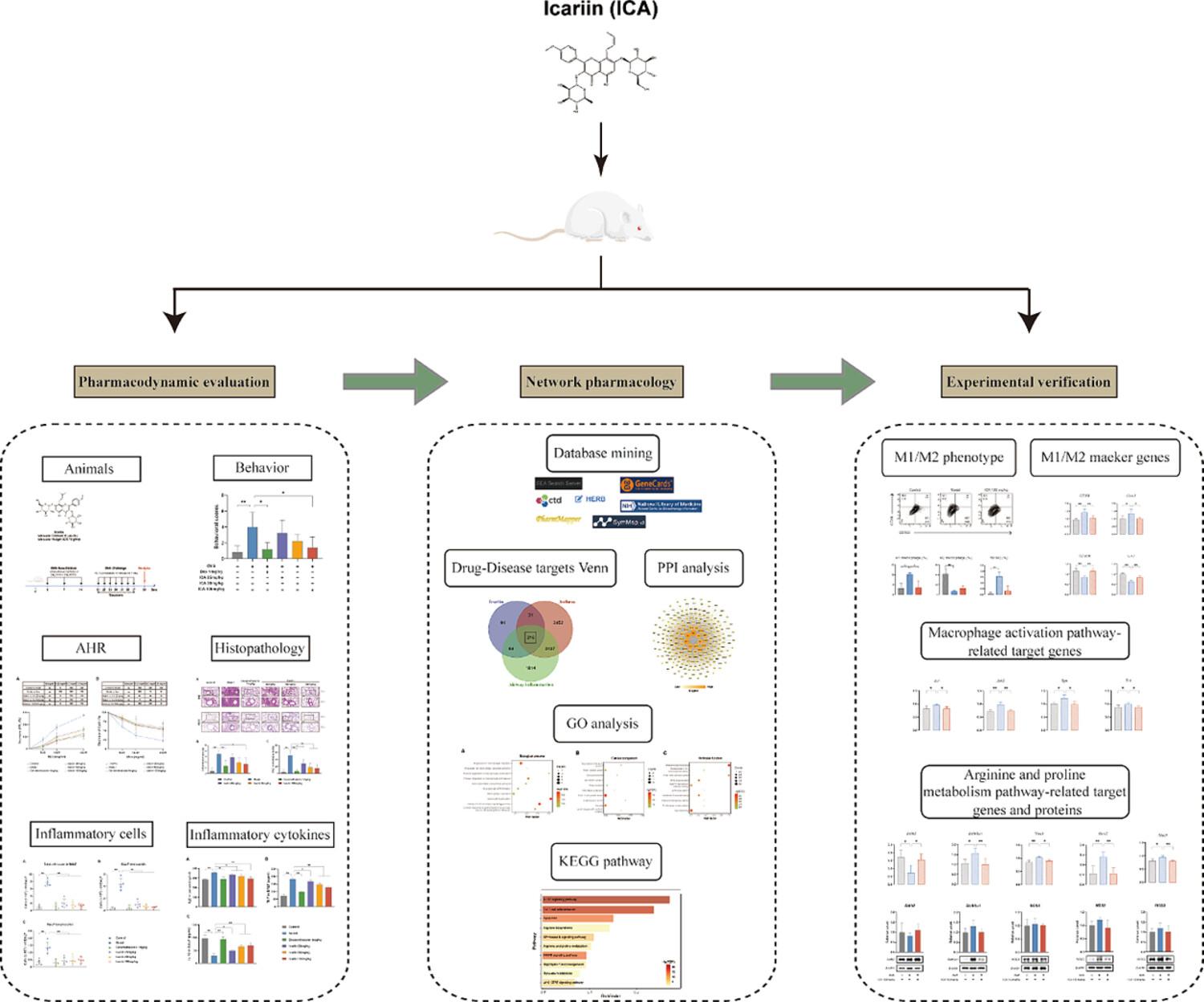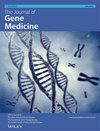Icariin attenuates asthmatic airway inflammation via modulating alveolar macrophage activation based on network pharmacology and in vivo experiments
Abstract
Background
Icariin (ICA) inhibits inflammatory response in various diseases, but the mechanism underlying ICA treating airway inflammation in asthma needs further understood. We aimed to predict and validate the potential targets of ICA against asthma-associated airway inflammation using network pharmacology and experiments.
Methods
The ovalbumin-induced asthma-associated airway inflammation mice model was established. The effects of ICA were evaluated by behavioral, airway hyperresponsiveness, lung pathological changes, inflammatory cell and cytokines counts. Next, the corresponding targets of ICA were mined via the SEA, CTD, HERB, PharmMapper, Symmap database and the literature. Pubmed-Gene and GeneCards databases were used to screen asthma and airway inflammation-related targets. The overlapping targets were used to build an interaction network, analyze gene ontology and enrich pathways. Subsequently, flow cytometry, quantitative real-time PCR and western blotting were employed for validation.
Results
ICA alleviated the airway inflammation of asthma; 402 targets of ICA, 5136 targets of asthma and 4531 targets of airway inflammation were screened; 216 overlapping targets were matched and predicted ICA possesses the potential to modulate asthmatic airway inflammation by macrophage activation/polarization. Additionally, ICA decreased M1 but elevated M2. Potential targets that were disrupted by asthma inflammation were restored by ICA treatment.
Conclusions
ICA alleviates airway inflammation in asthma by inhibiting the M1 polarization of alveolar macrophages, which is related to metabolic reprogramming. Jun, Jak2, Syk, Tnf, Aldh2, Aldh9a1, Nos1, Nos2 and Nos3 represent potential targets of therapeutic intervention. The present study enhances understanding of the anti-airway inflammation effects of ICA, especially in asthma.


 求助内容:
求助内容: 应助结果提醒方式:
应助结果提醒方式:


